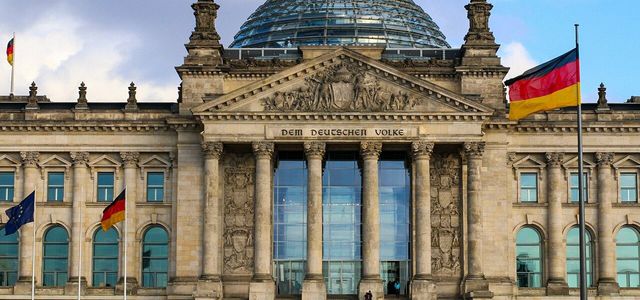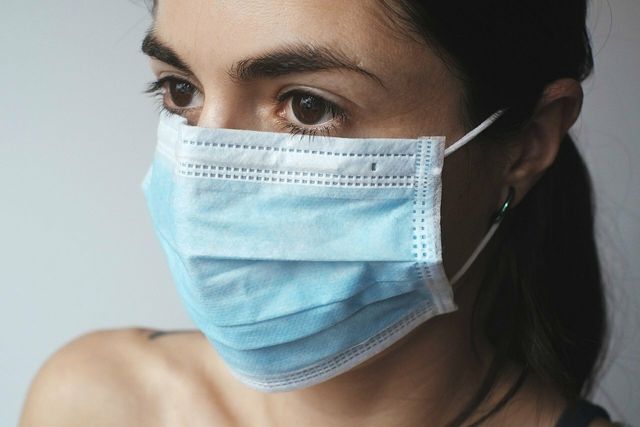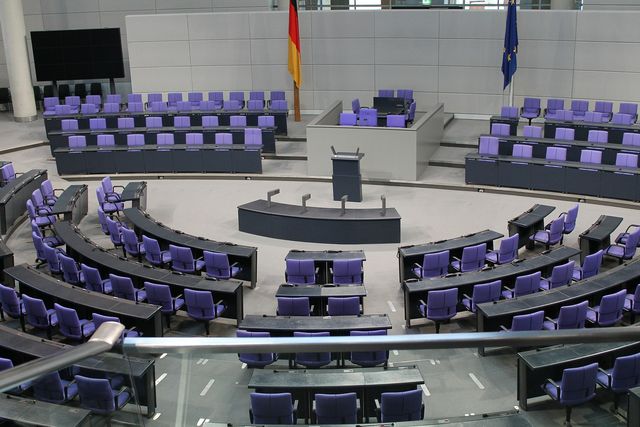
The Infection Protection Act is getting an emergency brake, which ensures new corona rules throughout Germany. Here is an overview of when the new law will apply and which new rules have been announced.
Germany has been fighting the corona pandemic for over a year. But despite several lockdowns, the number of corona sufferers continues to rise. Well should nationwide uniform regulations for stricter measures and easing here. That’s what Chancellor Angela Merkel (CDU) wants Change the Infection Protection Act and a nationwide Emergency brake build in. The federal government’s plan provides a number of measures if the 7-day incidence exceeds certain levels – among other things Exit restrictions, shop closings and Contact restrictions.
So far, the federal and state governments have always changed Prime Minister’s Conferences (MPK) agreed on measures. However, these resolutions were interpreted with different degrees of severity by the federal states. Now the measures are no longer to be negotiated at conferences, but are to be made binding in the Infection Protection Act.
Infection Protection Act: Change for new corona rules

(Photo: CC0 / Pixabay / coyot)
The German Infection Protection Act provides the legal framework for combating infectious diseases in Germany. This also includes the corona virus. The law obliges the federal states to take certain measures and is binding, while resolutions of the MPK first have to be passed in state laws or regulations. Chancellor Angela Merkel therefore wants one Emergency brake in the law implement the specific corona rules depending on the 7-day incidence value provides. Thus, the measures are linked to the new infections per 100,000 inhabitants within one week.
These new corona rules should apply from an incidence of 100 (according to design and Federal government):
- Contact restrictions for private meetings: Only one household and one other person are allowed to meet.
- shops: Only shops and supermarkets with everyday products are allowed to open. A large Emergency supply or Hamster purchases are therefore not necessary. Specifically, the grocery stores, beverage stores, health food stores, baby specialty stores, pharmacies, medical supply stores, drug stores, opticians, hearing aid acousticians, gas stations, newspaper sales outlets, bookstores, flower shops, pet stores, animal feed markets and garden centers are allowed to open.
- Body-hugging services: Only medical, therapeutic, nursing or pastoral services are allowed. Exception: the hairdresser remains open (with a negative corona test). But if you don’t want to expose yourself to the risk, you can do that too Cut hair yourself.
- Restaurants and hotels: You have to close.
- Leisure and cultural facilities: You have to close.
- Exit restrictions: Between 9 p.m. and 5 a.m., citizens are only allowed outside for a valid reason. This includes, for example, walking the dog.
These corona measures mentioned should be from one Incidence of 100 be valid. From one Incidence of 200 there should also be additional measures for the schools give: Face-to-face teaching is discontinued and the students are taught at home instead. Exceptions apply to graduating classes and special needs schools.
Incidence value and infection protection law: which corona value applies?
The measures listed here should be added to the Infection Protection Act in a separate paragraph (Section 28b). They are tied to the 7-day incidence value of 100 or 200 new infections. Specifically, this means:
- The applies Incidence value of the district or the independent city.
- If the incidence value exceeds the threshold of 100 or 200, the stricter measures apply from the day after next.
- If the incidence value falls below 100 for five consecutive days, the above measures will be lifted.
In addition to the corona measures, the federal government also wants Ordinances can enact. So far, she has not been authorized to do so, but she also wants to change that through a supplement to the Infection Protection Act. These legal systems can then contain additional measures against the coronavirus if the incidence value exceeds the threshold of 100.
When does the new Infection Protection Act apply?



(Photo: CC0 / Pixabay / clareich)
The changes and additions to the Infection Protection Act have already been decided by the federal government, but still need the approval of the Bundestag and Federal Council. The first deliberation in the Bundestag is planned for Friday, April 16, and the decision for Wednesday, April 21. Then the Federal Council, in which the Prime Ministers of the federal states sit, has to give its approval. He can appeal against the law, but the Bundestag can then still overrule him. The new Infection Protection Act could come into force on April 21. However, it is more likely that April 26, 2021.
It is still unclear whether the measures will actually be decided and will endure. In addition, the various corona rules are controversial among politicians: some MPs are demanding additional or more stringent measures, others doubt the effectiveness of curfews, among other things. In addition, various lawyers have already raised their concerns voicedthat the measures and their connection with the incidence value are not legally certain.
One thing is clear, however: the majority of rural districts and urban districts are currently at an incidence well over 100. If the federal emergency brake comes as planned, you have to many shops close. Even model trials with open stores and tests are history with an incidence of more than 100.
With good tips through the corona pandemic
The coronavirus unsettles and worries many people – understandably. But worrying too much can damage your health. We show what against Fear in the corona pandemic helps and like you in the Home office healthy through everyday work come
You can also find good news here:
- 11 things we can learn about sustainability in the Corona crisis
- Video calls: How to improve your carbon footprint
- Global standstill: How the coronavirus is affecting the climate